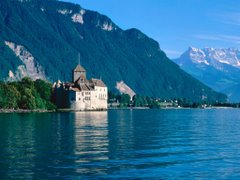Fears that China's economy is overheating are exaggerated
http://economist.com/finance/displaystory.cfm?story_id=9552969&CFID=13626166&CFTOKEN=47135672
 New figures showing that China's GDP growth quickened to 11.9% in the year to the second quarter, its fastest since the mid-1990s, while inflation jumped to 4.4% in June from 3.4% in May, have fuelled concerns that its economy is now seriously overheating. However, a closer inspection of the numbers suggests there is no need to panic—yet.
New figures showing that China's GDP growth quickened to 11.9% in the year to the second quarter, its fastest since the mid-1990s, while inflation jumped to 4.4% in June from 3.4% in May, have fuelled concerns that its economy is now seriously overheating. However, a closer inspection of the numbers suggests there is no need to panic—yet.China is always one of the first countries to report its GDP after the end of each quarter. But speed kills accuracy. Each province later publishes its own growth numbers, which have consistently averaged higher than the national figure in recent years. Moreover, if you add up the main components of GDP—investment, consumption and net exports—you also get a higher growth rate.
Thanks to such inconsistencies, many China-watchers track alternative proxies of growth. Jonathan Anderson at UBS uses one based on production (industry, electricity, construction, transport and agriculture) and another based on real expenditure (household spending, fixed-asset investment and net exports). Curiously, neither gauge shows an acceleration since 2003-04. The growth in electricity production rose broadly in line with GDP during the first half of this decade, but the economy's apparent surge since 2004 has not been matched by faster growth in electricity (see chart).
So what are Chinese number-crunchers up to? Mr Anderson suggests that the reported faster growth may partly reflect a move to correct previous inaccuracies. In the past, official GDP figures have been much lower than his own estimates, but now the gap has disappeared. In other words, the acceleration in growth may be largely illusory.
Other classic symptoms of overheating are also absent: bank lending and imports have slowed in recent years, and reports of surging wages due to labour shortages are misleading. Average wages in manufacturing have indeed risen by 15% over the past year. But HSBC reckons that labour productivity in manufacturing rose even faster, by 20%, so unit labour costs are still falling. Even inflation is not as bad as it seems. The recent jump was mainly due to the prices of pork and eggs. Excluding food, consumer prices have risen by only 1% over the past year. That is not to say that rising food prices (one-third of the consumer-price index) do not matter, but they are due to supply-side shocks, such as a pig disease, rather than excess demand.
This may help explain why the People's Bank of China has not slammed on the brakes. On July 21st the central bank raised lending and deposit rates by only 0.27 percentage points, to 6.84% and 3.33% respectively. The government also cut taxes on interest income from 20% to 5%. This will reward savers, giving them the equivalent of an additional 0.5 percentage points of interest, and thus encourage them to keep their money in the bank rather than speculating on shares.
Rates are still too low for such a fast-growing economy, but few expect the bank to lift rates aggressively to quash inflation. Higher rates would do little to dampen food prices. A better solution would be to let the yuan rise more quickly, which would curb the prices of imported foods. Hong Liang at Goldman Sachs reckons that a 10% rise in the yuan's trade-weighted value would knock 1.5 percentage points off inflation over two years.
The yuan's appreciation has already quickened this year, rising by an annual rate of 9% since April, compared with only 3.4% in 2006. Goldman Sachs predicts a further 9% rise over the next 12 months. This would not only help to squeeze inflation, it would also help to ease trade tensions with America, which complains that China's currency is too keenly priced. This week the Senate Finance Committee was due to begin drafting legislation that would allow firms to seek antidumping duties to offset the alleged “subsidy” from the undervalued yuan. The bill enjoys wide support and is likely to be passed before the end of the year. The real overheating, it seems, may be in Congress.


